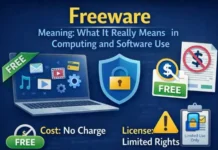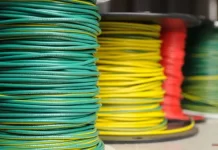Are you aware that consumers lost $5.8B to financial crimes in 2021? That is a 70% increase from 2020. With so much chaos in the world, it’s easy to see why someone would fall prey to one of these crimes.
When you go online, do you know how to protect yourself adequately? What are the best practices to follow when you go online? If you don’t know how to protect yourself, you risk losing your identity and your money.
We don’t want this to happen to you and are here to help. Read on for some of the best digital finance protection tips.
Protect Online Information
Whenever you use a public computer, you’ll want to avoid entering personal information. These personal details include financial information and log-in credentials. These computers may have software that stores passwords.
Make sure the sites you frequent all start with HTTPS. Checking this is especially crucial when doing online banking and will lower the chances of any financial crimes.
Monitor Accounts
You want to monitor all of your accounts online daily closely. Log in and keep an eye on them to see if there is any suspicious activity occurring.
We recommend setting up alerts and notifications via your banking app to avoid fraud. This way, you can easily see all of the transactions coming in, if there was an unusual withdrawal or transfer, etc.
Identity theft is still all too common these days, but thankfully technology is moving in the right direction. This article explains what to expect from KYC (Know Your Customer) verification.
Slow Down When Asked to Share Data
Nowadays, hackers are getting more sophisticated with their financial crimes via calls, texts, and social media. Whenever you are requested to give some sensitive data away, slow down and think twice.
Many scammers will appear to be trustworthy sources when trying to manipulate you into giving them what they want. This manipulation is the art of phishing.
Watch Out for Prying Eyes
Not all financial crimes happen online. One of the best fraud protection tips we can provide is to watch your back. Whenever you have to enter sensitive information (credit card, PINs, etc.), look around you first.
Some scammers will try to snap a photo of your credentials.
Shred Sensitive Materials
Once you have checked all of your banking records (ATM receipts, checks, mobile banking), shred the documents. You’ll want to keep monthly checking and savings accounts records on file for when you file taxes.
Check out local shred events if you have a lot of paperwork. To avoid this altogether, you could go paperless.
Follow Best Practices to Diminish Financial Crimes
Whenever you go online and deal with your finances, you better understand what to do and what not to do. While financial crimes are an ever-evolving scare, you are not alone.
When you educate yourself on security, it’s best to share that intel with others. To stay alert and informed on tech, finance, and safety, we highly encourage you to read our blog ASAP.

































